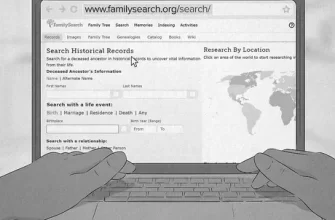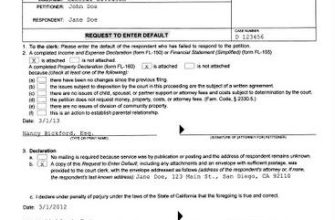Do all divorces go to court? This may sound like an oxymoron, but this question has a very real answer. Divorces can be uncontested, mediated, or tried in court. Regardless of the method chosen, the court will make orders that will affect both you and your ex. Read on to learn more. You may find yourself wondering, «Do all divorces go to court?»
Uncontested divorce
The process of an uncontested divorce does not go to court, as long as both spouses agree on the terms of the divorce. However, if either spouse wants to go to court and file for divorce, they will need to hire an attorney. An uncontested divorce is often easier than a contested one, but can be difficult for couples in tense situations or who disagree on important issues. Listed below are the steps to an uncontested divorce.
The most important thing to understand is that uncontested divorces are not the same as litigated divorces. Uncontested divorce is easier for couples who have no minor children, no real property, and few assets. This method works best for spouses who are financially independent. Uncontested divorce procedures are offered in some states, but these are typically limited to marriages of less than five years. Therefore, if you’re considering this type of divorce, make sure to research the specific laws in your area.
After filing, an uncontested divorce hearing will be scheduled. This hearing will be attended by the plaintiff, the person who filed the divorce. While the spouse is not required to attend, they are welcome to. At this hearing, the plaintiff will need to bring a certified copy of the marriage certificate, and will need to produce the original of the certificate if the latter does not. If the case does not go to court, the court will allow the uncontested divorce to proceed.
Mediation
The truth is, not all divorces end up in court. In fact, most are settled through mediation, but in some cases a relationship is too irreconcilable to be resolved in any other way. Other situations involve high-value property, and disputes over compromise may end up in court. Here’s how to avoid the courthouse and reach a fair and equitable settlement. Whether your divorce will end up in court depends on the facts of your case and your wishes.
Divorces can be lengthy, but they don’t necessarily have to. You can file for temporary orders in order to decide who will pay the bills and who will take care of the children. Temporary orders are important documents that outline who will be responsible for important things, such as paying off debts and custody of the children. However, you may wish to seek legal assistance if you’re unsure about the process.

Generally, couples can reach an agreement on a general custody and visitation schedule. If there’s disagreement regarding child custody and visitation, however, a trial may be necessary. Moreover, in some cases, the parties can agree to disagree on other issues, such as religion, medical treatment, and extracurricular activities. If there’s disagreement regarding finances, divorces are more likely to end up in court than they would otherwise, because one or both parents is more likely to fight than the other to maintain their parental rights.
Trial
A trial is an important aspect of a divorce case. It involves the presentation of evidence by calling witnesses and submitting documents. The purpose of a trial is to find out the truth. As such, discrediting evidence is just as important as presenting your own. Ultimately, the trial is meant to determine how the couple should divide their assets, liabilities, and property. In addition to determining the legalities of a divorce, the trial also serves to clarify whether there are any hidden assets or hidden income.
Unlike other legal proceedings, divorce trials are conducted by a judge. The judge will consider the evidence gathered through discovery and questions from the parties. Then, he will issue a final order that outlines the decisions made and the reasons why. The process of a divorce trial can take a long time. Therefore, the parties should consider this fact when preparing for a trial. The process can be complicated, so it is important to consult with a divorce attorney before beginning the process.
There are many legal theories that can be used to defend an unjust divorce case. A divorce decree is often reversible based on the weight of the evidence. However, if the judge rules against you because of insufficient evidence, you may be entitled to a new trial. However, it is important to note that a trial does not have to be a trial. It may be a trial with a new trial, or an appeal with a new judgment. The court’s role in a divorce case can vary greatly, and you should consult your state’s laws to make sure that the rules are correct.
Orders made by the court
Orders made by the court in divorce cases have two main types: final and interim. A final order does not have an expiration date, but is binding on both parties. Interim orders must be followed while interim orders are subject to modification. However, most of the time, final orders are not altered. A judge will make an order based on the parties’ mutual agreement. Here are some types of orders made by the court.
Proposed court documents must be served on both parties. Objections to the proposed documents must be filed within five days. The court will check the order for accuracy and stamp it with a court order number. Upon completion of the order, it becomes final and binding on both parties. Parties may request an extension if the circumstances warrant. They can also file objections if they disagree with a particular court order.

One type of order is known as a Domestic Relations Injunction, which prohibits the responding spouse from harassing the petitioner. This type of order can prohibit the spouse from making certain decisions, including changing beneficiary coverage, transferring property, or denying visitation or returning the child. The enforcement of such an order depends on the specific circumstances of the case. Depending on the circumstances, the spouse can be ordered to pay spousal support, pay child support, or return a minor child.
Costs
Whether you decide to file for divorce in court or work out a settlement outside of it, the costs can add up. Divorce lawyers charge by the hour, and the more disputes that go through the courtroom, the more time they have to prepare motions and appear in court. Even answering phone calls and emails for them can add to their bill. Often, even if the divorce is final, disputes continue long after the final judgment. Forensic accountants can help identify hidden assets that would otherwise be unaccounted for.
Attorney fees alone can reach several thousand dollars or more. The costs of a divorce attorney can run upwards of $5,000 per spouse. In addition to their fees, lawyers can charge for expert witnesses and other services. Typically, couples pay $100 per hour for an attorney, but outliers may charge as much as $500 per hour. In addition to attorneys’ fees, spouses also have to pay for court fees and other court costs.
The costs of a divorce in court can range from $13,000 to $30,000, depending on the complexity of the case. It can cost more than thirty thousand dollars if a judge is involved. It can also cost thousands of dollars if you want a full custody of the children. You can hire a divorce lawyer to help you argue your case, but it’s also important to keep in mind that it can cost more if you want to get full custody of the children. The cost of hiring a child custody evaluator and a divorce lawyer can add up very quickly.
Preparation
Before you go to court, it’s important to be prepared for any possible scenario. During your divorce case, you may need to testify as a witness. It’s important to know how to act in court so that you can appear natural. Most attorneys won’t go over the specific questions to be asked. But it is important to ask yourself what kind of territory you may be asked to cover. Here are some tips to help you get ready.
o Meet with your divorce attorney and determine a strategy. While your attorney will take the lead, you must be flexible and responsive to the attorney’s questions. Gather your witnesses, phone numbers, and texts, and decide on expert witnesses. You’ll also need to collect all the paperwork and documents that you’ll need for the trial. If you’ve ever attended a divorce trial before, you’ll know how stressful it can be. Thankfully, divorce attorneys are experienced in handling divorce cases.

o Collect and organize all the documents you need to file for the divorce. Organize your financial documents and bank statements and make sure you gather copies of all documents. Having your documents in one place can help your divorce go more smoothly. Whether you’re filing in state or federal court, there are important documents you should have in hand. You should have at least three months’ worth of living expenses saved before you go to court. If you don’t have these, you should contact your attorney for assistance in getting the financial support you need.
The answer to this question may surprise you. A petitioner has several advantages over a respondent in a divorce case. For starters, the petitioner has control over the pace and costs of the divorce. A respondent has a lower financial stake in the divorce, but must pay for the cost of the lawyer. And a petitioner’s lawyer may not be your best friend.
Control over the pace of the divorce
In a divorce case, the petitioner initiates the process. The respondent will need to appear in court to be heard. The judge will decide based on evidence presented by both parties. The petitioner is allowed to keep the family home, and the respondent can also keep it. The parties have equal rights in this area. If the parties cannot agree on what to do with the family home, the judge will grant the petitioner’s request for divorce.
Control over the costs of the divorce
You can be either the petitioner or the respondent in a divorce. You may not be the one who receives the divorce papers. In either case, the divorce process can feel like a fight between a petitioner and a respondent. Fortunately, there are ways to minimize the cost and time of divorce litigation and make it as stress-free as possible.
When you serve the petitioner with the divorce papers, you have thirty days to respond to the divorce. If you are unable to respond within the stipulated time, you may request a default. If the respondent does not file a responsive pleading in time, the petitioner can request a default judgment, which means that the respondent will not contest the petition. This puts the respondent at a significant disadvantage.
Control over the outcome of the divorce
In a no-fault divorce in Arizona, one party can file for the divorce even if there is no fault in the relationship. A petitioner will feel more empowered, because he will set the terms of the divorce. Choosing to be the petitioner is also a good choice if you want to be in control of the separation. There are several benefits to filing for divorce as a petitioner.
The process begins with serving the petitioner with divorce papers. Unlike the spouses who are served without divorce papers, the respondent will have 30 days to file a written response. This response will usually deny the allegations in the petition, preventing the petitioner from taking a default judgment. During this time, the respondent can also file for a counter-petition, in which case the respondent will need to serve the petitioner’s attorney with the counter-petition.
Filing first gives the spouse who files the papers the most control over the process. The process starts when the petitioner files, so they can plan their next moves accordingly. If the respondent files first, however, they must respond within the court’s timeline, which may be longer than the petitioner’s. If the respondent files first, they have more control over the pace of the divorce.








